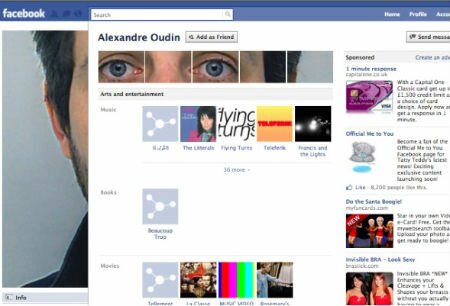I was in conversation with Don Tapscott today as part of the Social Media Leadership Forum. It was exciting and a great privilege.
It was reading one of Don’s books, , which first made me interested in the rise of the web and its potential impact.
Don talked about the enormous potential of the web and in particular its collaborative power which he sees as having the capability to significantly renew business, our institutions and society.
Rather than banning Facebook and putting young people (digital natives) in cubicles, they should be embraced, Don argues. The power of social networking tools which people use for their own leisure have the potential to become a new operating system for business, promoting new methods of knowledge sharing, partner and customer collaboration and production.
He argues that CEOs should be blogging and using Twitter and that businesses and organisations should abide by the key new principles: collaboration, openness, sharing, integrity and interdependence.
On the call, he said he saw Wikileaks as the emergence of deeper trends in society where businesses and Governments whilst having the rights to secrecy also have obligations to be more open for the public good.
He was critical of old industrial models and argues that many of our institutions suffer from old industrial age thinking: centralized, one size fits all, and one to many. Instead they have to become smarter,and more innovative by embracing the collaborative values of wikinomics: collaborating on shared concerns and challenges.
Economically Don argued it does not make sense anymore to simply source knowlege and products and services within the walls of your company as the internet reduces costs to reach out to people, and hence it can help to boost productivity by enrichening businesses by enabling companies to use new technologies to link to a whole range of uniquely qualified minds.
Within the workplace, people should have personal profiles and be encouraged to set up online groups, blog, use wikis, and micro blog with each other.
Because of the new web, the old industrial model is being turned on its head.
It is so helpful and inspiring to hear someone talk as eloquently and hopefully like Don about the future and how the web can help to create a more prosperous, just and sustainable world. I know there are sceptics out there who talk up the dark side of the internet – and it does exist obviously. However Don made the point that the future is not a given, it is there to be achieved.
Eric Schmidt, CEO of Google, has reviewed Don’s latest book and describes it as….’pointing the way forward for all of us’. That hour with Don Tapscott really appealed to me as someone who believes in the value of positive change. I hope everyone on the call – all the other members of the Social Media Leadership Forum – enjoyed it too.
I’d like to thank Fran for helping to organise the event and to all the members of the Social Media Leadership Forum who are supporting the exchange of innovative new ideas as we all in our own way collaborate together, across industry sectors, and respond to the great opportunities and challenges presented by the social web.





